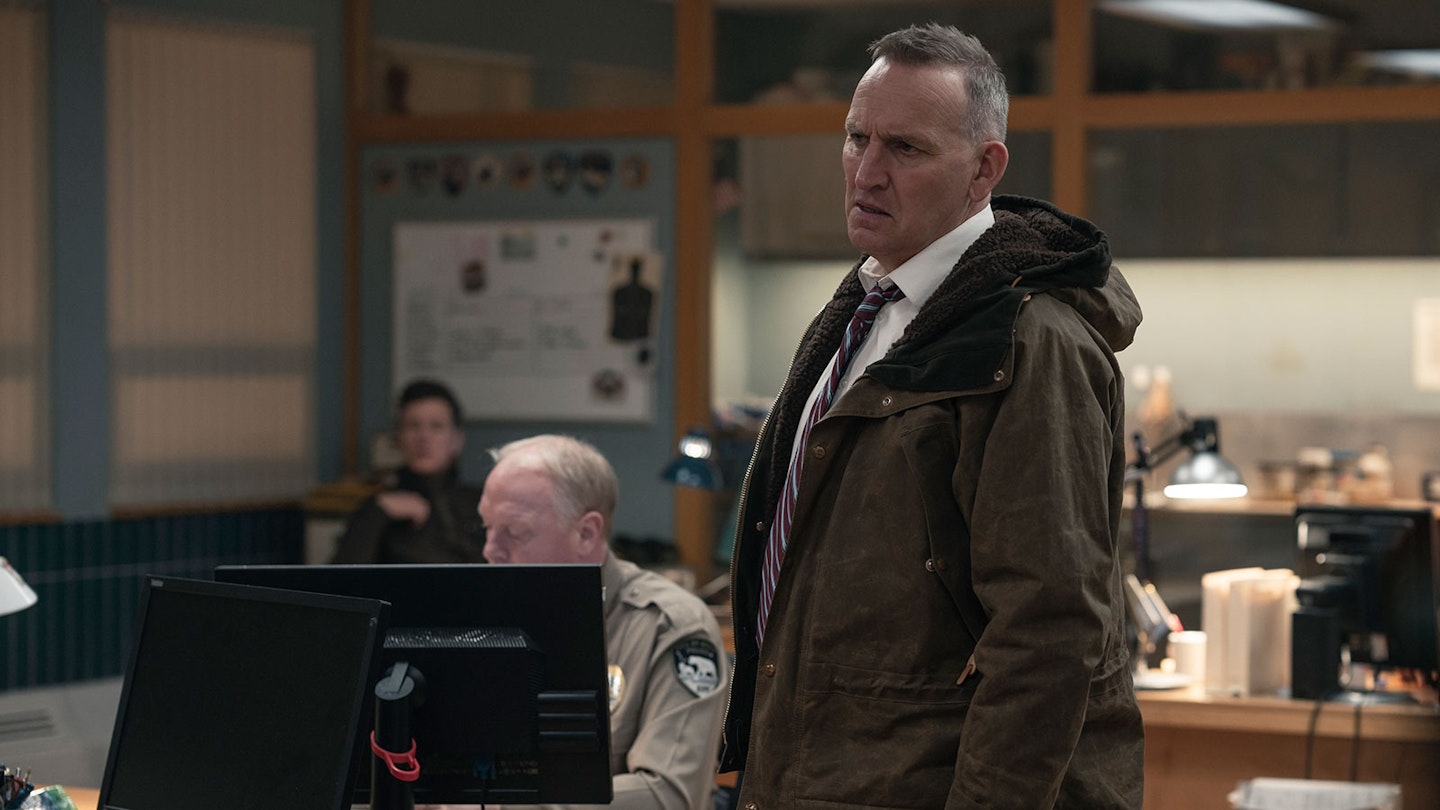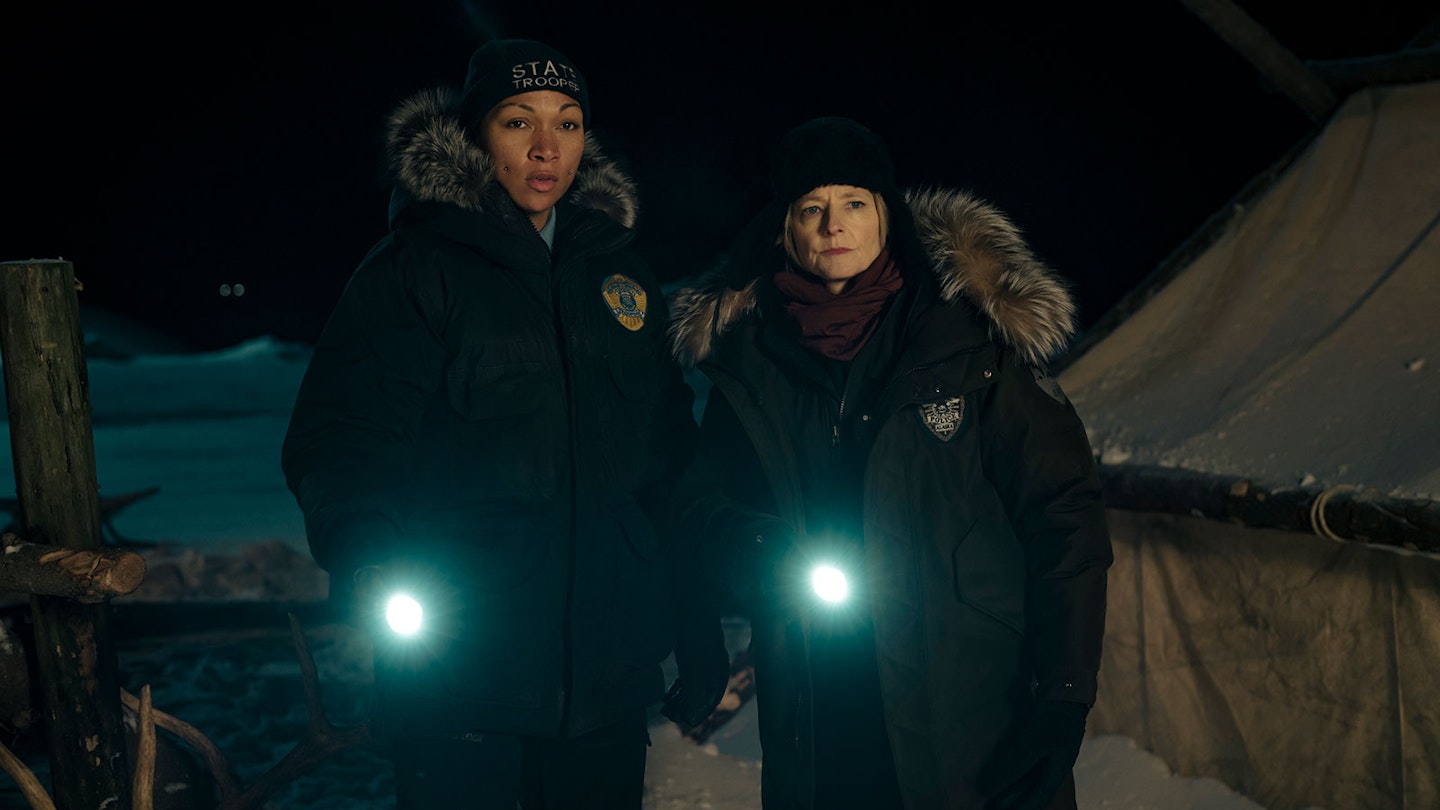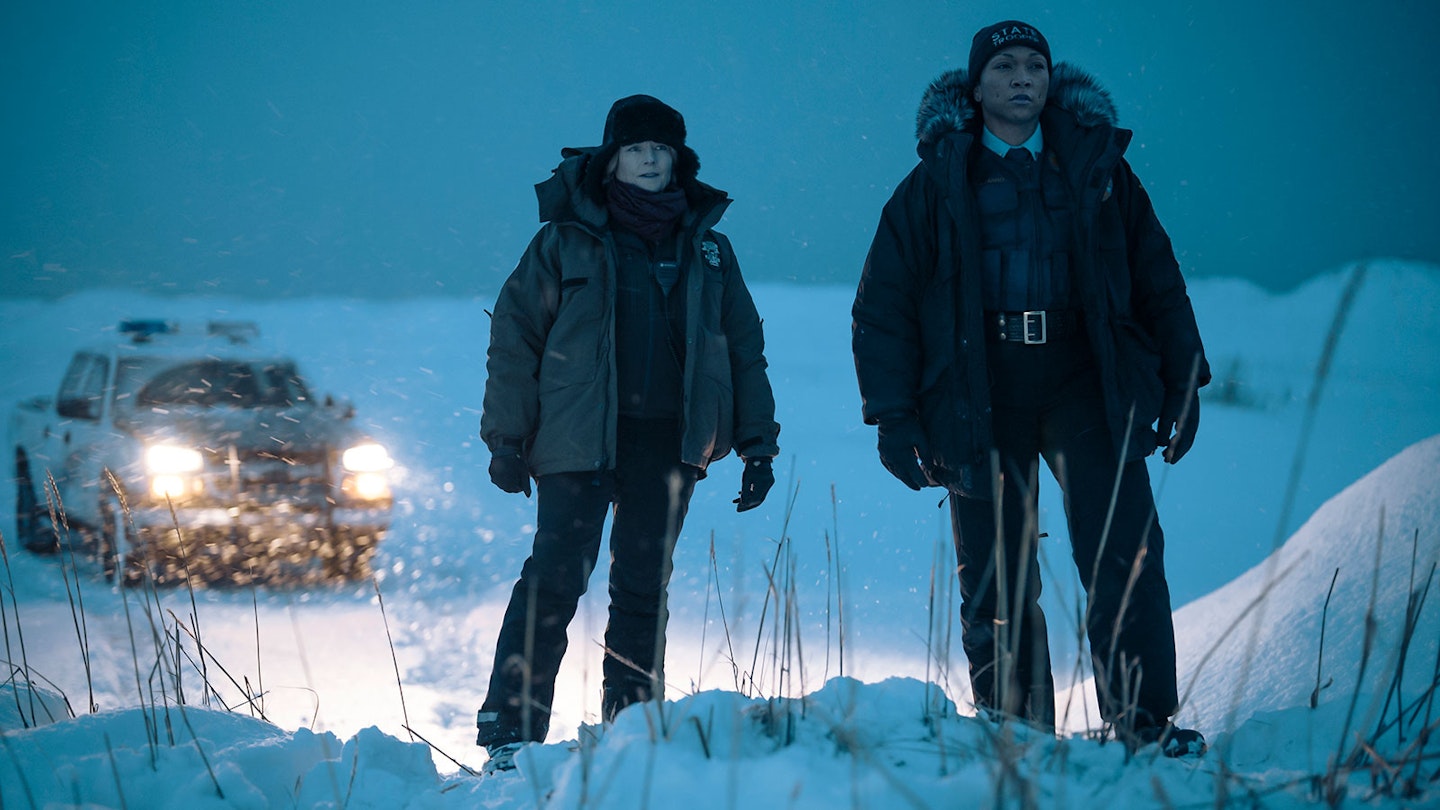Streaming on: Sky Atlantic / NOW
Episodes viewed: 6 of 6
That True Detective has maintained prestige-TV status says a lot about its early brilliance. Season 1 was a phenomenon, with Cary Joji Fukunaga directing it all with such flair that a whodunnit treading often familiar beats felt fresh and thrilling. Seasons 2 and 3 disappointed, creator Nic Pizzolatto’s writing becoming dreary without someone to interestingly interpret it. The belated fourth season course-corrects forcefully. Pizzolatto has stepped back to executive producer. Directing and writing duties are now in the hands of Issa López, who looks set for big things.

While not a direct sequel, López has made something that feels related to season 1. She pulls at threads the original left dangling and inverts much about its themes and settings. Then, Woody Harrelson and Matthew McConaughey investigated the possibly supernatural murders of women in sweltering Louisiana. Here, Jodie Foster and Kali Reis try to solve the weird deaths of a group of men in the perma-night of an Alaskan winter, where the sun doesn’t rise for weeks.
The setting is a masterstroke, the oppression of the eternal darkness making the community’s collective fragile sanity entirely believable.
Foster is police chief Danvers, not widely liked and not really bothered. Reis is Detective Navarro, once Danvers’ partner, now a lone wolf. They live in a split community, where indigenous Iñupiaq, like Navarro, are treated as secondary. Both women are challenged, and reluctantly reunited, when men from a scientific facility are found naked and dead in the ice, contorted as if fleeing something terrifying.

Foster and Reis make a compelling pairing, Foster simmering as a woman who’s turned life’s pains into a thin protective crust; Reis a stoic presence as someone underestimated since birth. The setting is a masterstroke, the oppression of the eternal darkness making the community’s collective fragile sanity entirely believable, and the unforgiving landscape seeming like it could conceivably hide paranormal secrets. Part of the True Detective blueprint has always been an unhurried pace and frugality with plot. Night Country sticks to that. Even at six episodes it’s sometimes stretched, but the atmosphere sustains it. In environments where you can rarely see much further than your hand, there’s a horror momentum to it — the creeping belief that something unexplainable could always be waiting.
If she doesn’t deliver the breathtaking set-pieces that made Fukunaga’s name, López has a strong tone and writes characters who all feel like they exist beyond the camera’s gaze. And with her chosen setting she makes the series’ signature otherworldliness innate, rather than the indulgent quirk it’s often been. This is a return to form. In the sub-zero darkness of Alaska, True Detective has rediscovered its fire.

